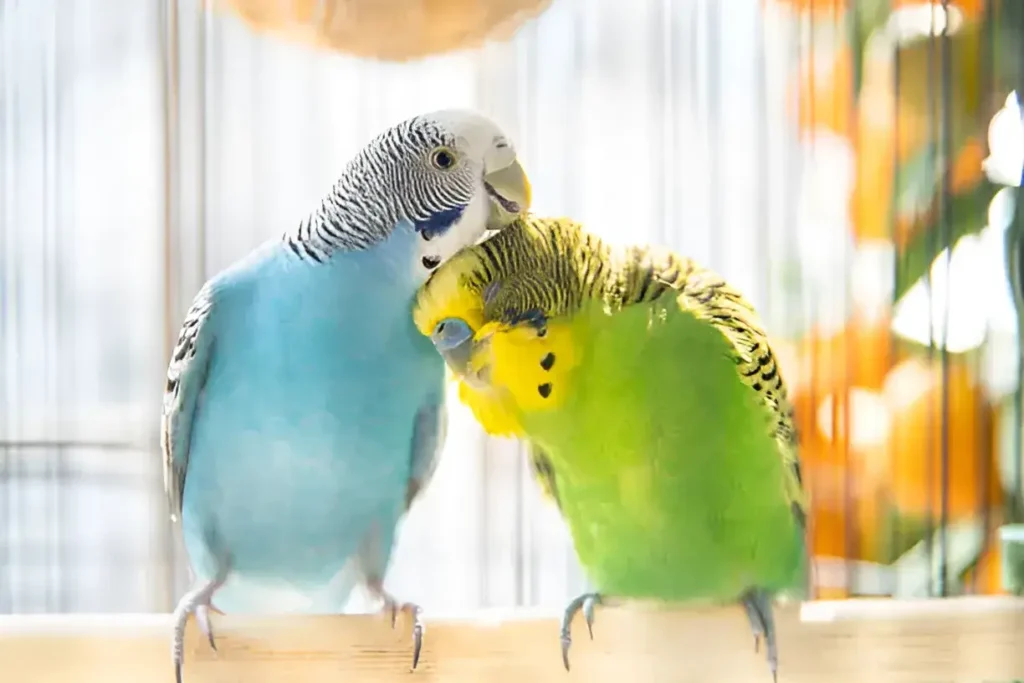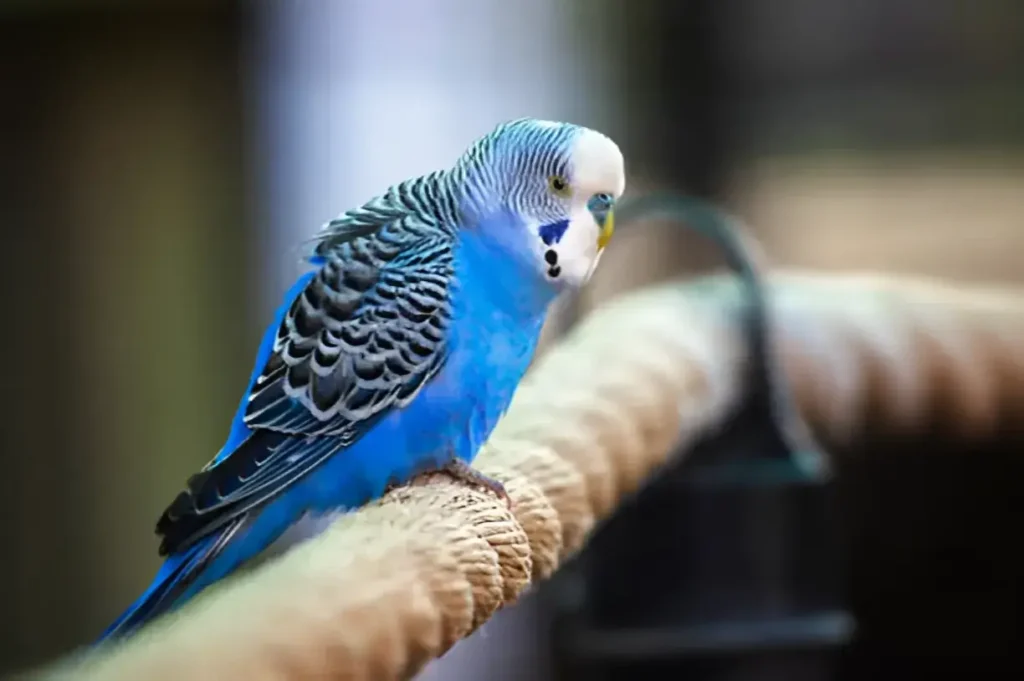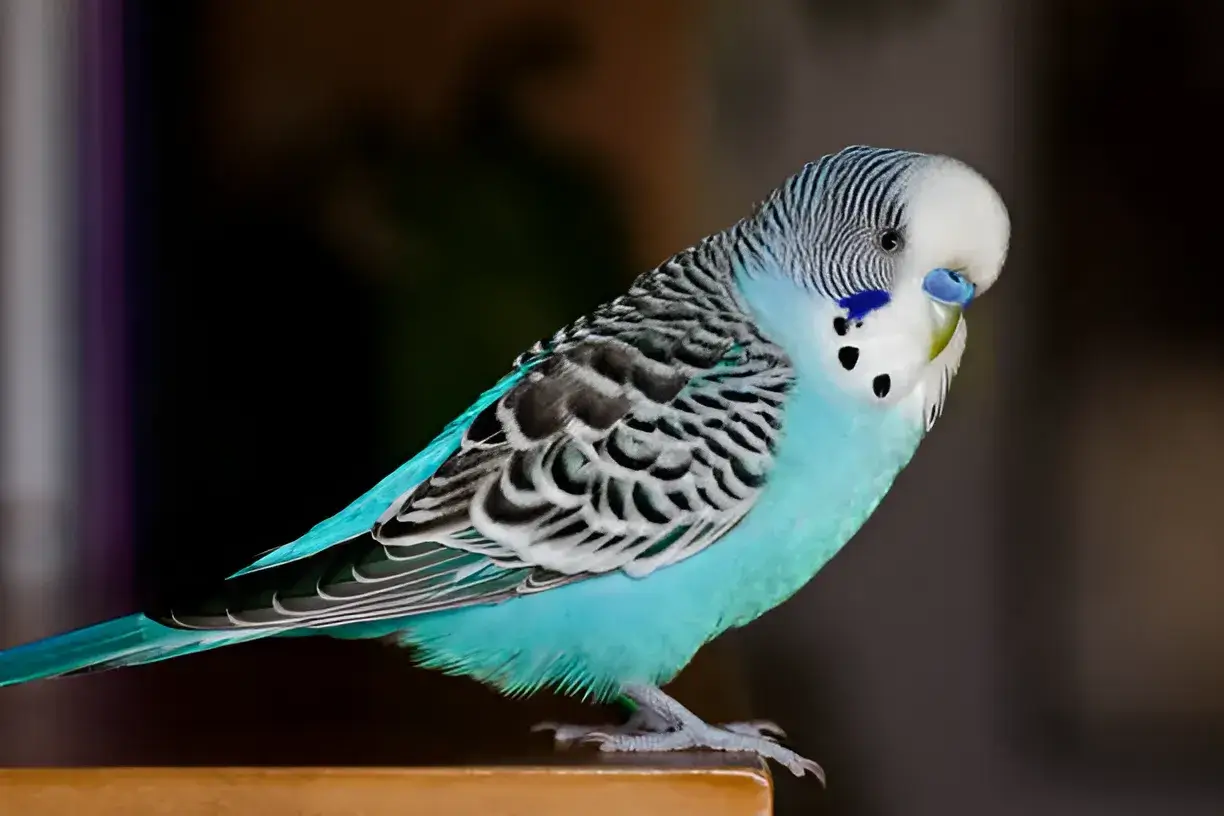Budgies (also known as budgerigars) are fantastic pets – they’re small, cheerful, and surprisingly intelligent! With proper care, these little parrots can live for a decade or more. Here’s the ultimate guide to keeping your budgie happy and healthy.
Choosing Your Budgie
- Where to adopt: Consider local shelters or reputable breeders. Look for bright, active birds with clear eyes and smooth feathers.
- Single or pair? Budgies are social! It’s best to keep them in pairs. If you can only get one, be prepared to provide plenty of attention and interaction.
Setting Up the Perfect Budgie Home
1. Spaciousness is key: Budgies need room to fly and play. Choose the largest cage you can comfortably accommodate. The minimum for a single budgie should be at least 18″ wide, 18″ deep, and 24″ tall – go bigger if you have a pair.
2. Find the ideal spot: Place the cage in a well-lit part of your home where your budgie can feel part of the family, but ensure it’s protected from drafts, extreme temperatures, and kitchen fumes.
3. Perch variety: Provide several perches made of natural wood, offering different diameters and textures. This promotes foot health and prevents boredom.
4. Fun and games: Budgies love to play! Keep their environment stimulating with a variety of safe toys like bells, swings, chewable items, and foraging toys that encourage them to work for treats.
The Best Budgie Diet

- Pellets are paramount: High-quality budgie pellets should form the base of their diet.
- Fresh is best: Supplement with a variety of dark leafy greens, vegetables like broccoli and carrots, and some fruits (in moderation).
- Seeds sparingly: Seeds are a treat, not the main course. Too many seeds lead to obesity.
- Freshwater always: Provide clean water daily. Consider a shallow dish for bathing!
Keeping Your Budgie Healthy and Happy
- Cage cleaning is key: Clean the cage weekly, and food/water dishes daily. Use a bird-safe disinfectant.
- Out-of-cage time: Supervised out-of-cage time for exercise and bonding is essential. Bird-proof the room first!
- Talk and interact: Budgies are intelligent and can learn to mimic words and sounds. Spend time chatting and playing with your feathered friend.
- Vet checkups: Annual checkups with an avian vet are important for preventative care.
Beyond the Basics
1. Understanding Your Budgie’s Language: Budgies are expressive little creatures! Here’s a quick guide to their common sounds and gestures:
- Chirping and Chattering: A sign of contentment and playfulness.
- Beak Grinding: A relaxed budgie, similar to a cat purring.
- Head Bobbing: Can signal excitement, playfulness, or courtship behavior.
- Wing Flapping: Exercise, showing off, or trying to cool down.
- Tail Bobbing: Often accompanies happy chirping.
- Eye Pinning: Dilated pupils mean either excitement or fear, depending on the context.
2. Advanced Training Fun: Ready to take your budgie’s skills to the next level? Here are some fun tricks to teach with positive reinforcement:
- Target Training: Teach your budgie to touch a chopstick (or similar object) with its beak, then follow it. This is the foundation for many other tricks.
- Recall: Train your budgie to fly to you on command when called.
- Fetch: Some budgies enjoy retrieving small, lightweight objects.
3. Seasonal Care Tips:
- Molting: Budgies molt heavily a few times a year. Offer extra baths and protein-rich foods during this time.
- Springtime: Increased daylight can trigger hormonal behaviors. Maintain a consistent schedule and avoid simulating nesting behaviors.
- Summer Heat: Keep the cage out of direct sun, provide plenty of water, and consider misting your budgie lightly for cooling.
Common Budgie Health Issues

- Mites: These tiny parasites can cause itchy skin and feather damage. Consult a vet for treatment if you suspect an infestation.
- Feather plucking: This behavior could be triggered by stress, boredom, or medical conditions. It’s important to address the underlying cause.
- Respiratory problems: Listen for wheezing or difficulty breathing and consult an avian vet if you notice these signs.
- General signs of illness: Look out for lethargy, ruffled feathers, unusual droppings, or nasal discharge. A vet visit is important if you see these changes.
Introducing a New Budgie
- Quarantine: Keep the new budgie in a separate cage for at least 30 days to check for illness.
- Gradual introductions: Start with cages side-by-side, then supervised out-of-cage time in a neutral area.
- Be patient: It may take time for budgies to become comfortable with each other.
The “Before You Get Your Budgie” Checklist
- Commitment: Can you provide daily care and attention for 10+ years?
- Budget: Are you prepared for the costs of food, vet care, and supplies?
- Noise: Are you comfortable with the level of chatter budgies produce?
- Supplies: Do you have a suitable cage, perches, toys, food, and a bird-safe cleaner?
Household Dangers
1. Toxic Houseplants: Many common houseplants are surprisingly dangerous for birds. Here’s a list to be aware of:
- Lilies (all varieties)
- Poinsettia
- Ivy
- Tulips
- Azalea
- Oleander
- Philodendron
- Daffodil
- Peace lily
- Aloe-vera
- And many more! Always double-check before introducing any new plants to your home.
2. Cleaning Supplies: Fumes are the main danger. Even “natural” cleaners often contain essential oils that can be harmful to a bird’s sensitive respiratory system. Stick with bird-safe disinfectants or plain diluted vinegar for cleaning.
3. Hidden Hazards:
- Lead paint: A risk in older homes, especially if your budgie chews on things.
- Ceiling fans: Always off and blades secured when your budgie is out of its cage.
- Open toilets/water sources: Potential drowning hazards.
- Uncovered windows/mirrors: Budgies can accidentally fly into them.
- Teflon and non-stick cookware: Releases toxic fumes when overheated. Opt for stainless steel or cast-iron.
- Other pets: Supervise interactions with cats or dogs.
Advanced Enrichment Ideas
- Puzzle feeders: Hide treats inside boxes or toys to encourage foraging.
- DIY toys: Use cardboard boxes, pinecones, and natural materials.
- Flight training: Teach your budgie to fly to you on command.
Conclusion
Budgies are wonderful feathered friends who bring joy and personality to your home. By providing them with the right care and a stimulating environment, you’ll create a lasting bond with your little companion.
The photo featured below the post headline is Credit: Alicia Llop/gettyimages
I hope you find this post helpful and informative. If Yes’ feel free to share it with your friends!
Frequently Asked Question
Can budgies live alone?
They can, but thrive in pairs for companionship.
Are budgies noisy?
Budgies are chatty, but not excessively loud.
How do I know if my budgie is sick?
Signs include lethargy, ruffled feathers, nasal discharge, or changes in droppings. See a vet immediately.
Are budgies easy to take care of?
Budgies are considered relatively low-maintenance compared to some other pets. However, they still require dedicated daily care, including fresh food and water, cage cleaning, and social interaction.
What are the do’s and don’ts of a budgie?
DO provide a spacious cage, healthy diet, toys, interaction, and vet care. DON’T expose them to fumes, loud noises, other pets without supervision, or handle them roughly.
What do budgies need in their cage?
Essentials include: food and water dishes, a variety of perches, toys, a cuttlebone for calcium, and a shallow bath dish (optional).
How do you take care of a budgie for the first time?
Focus on providing a calm environment, quality nutrition, gradual socialization, and establishing a routine for feeding and cleaning.
How to care for a budgie bird female?
Care is the same for both males and females. If you suspect your female budgie might lay eggs, provide a nesting box and additional calcium.
How to take care of a budgie egg?
If your female lays eggs, it’s generally best to leave them alone unless advised otherwise by a vet. They’re likely unfertilized.
How to take care of budgies in winter?
Ensure their cage is away from drafts, provide slightly more fatty food for warmth, and consider supplemental lighting to maintain their light cycle.
How long do budgies live?
With excellent care, budgies typically live 5-10 years, but some can live even longer!
Do budgies talk?
Many budgies can learn to mimic words and sounds. Males are generally more talkative, but females can learn as well.
How do I bond with my budgie?
Spend time talking calmly to them, offer treats by hand, and provide supervised out-of-cage playtime.

